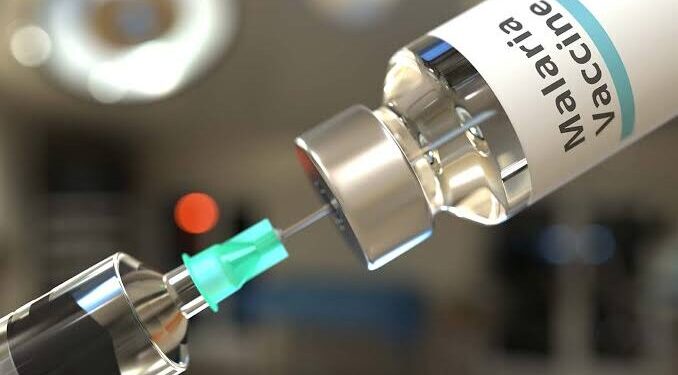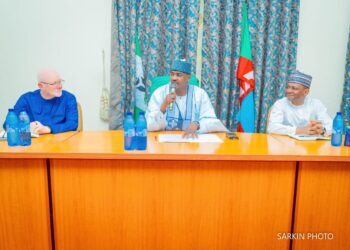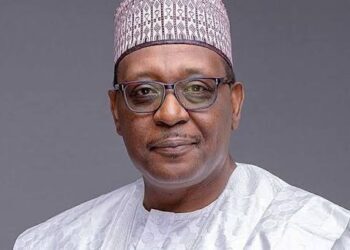The News Agency of Nigeria (NAN) reports that the programme is being launched simultaneously in Bayelsa.
NAN also reports that the Dep. Gov. Umar Abubakar-Tafida, of Kebbi, flagged off the malaria vaccine immunisation exercise in Birnin Kebbi on Monday.
Flagging the exercise, Abubakar-Tafida, lamented that malaria had been a significant challenge, “claiming countless lives and impacting the health and well-being of our communities.
“Today, we take a monumental step in our ongoing battle against this deadly disease.
“The introduction of the malaria vaccine stands as a symbol of hope and a clear demonstration of our unwavering dedication to protecting the health of our citizens.
“Kebbi State has long remained committed to improving the health and well-being of its people.”
He said the present administration’s focus has always been on ensuring accessible healthcare, advancing medical interventions, and addressing the pressing health challenges that affect the communities.
“The introduction of the malaria vaccine into our routine immunisation programme is a clear indication of this commitment.
“We recognise that the health of our people is foremost to the growth and prosperity of our state.
“This initiative is part of our broader vision to reduce preventable diseases, particularly malaria, and to create a healthier, more resilient population,” he said.
Abubakar-Tafida, also added that the introduction of the malaria vaccine was a game-changer in their fight against this disease.
“When combined with existing malaria control measures such as Seasonal Malaria Chemotherapy (SMC) and the distribution of treated mosquito nets, we are confident that we can significantly reduce the burden of malaria in Kebbi.
“With the launch of this vaccine intervention, we are optimistic that we can create a healthier, more prosperous future for our people,” he said.
Abubakar-Tafida urged the general public to take advantage of the lifesaving intervention, saying” the vaccine is safe, effective, and free.”
He stressed the need for all stakeholders to work together to ensure that children, families, and communities were protected from the scourge of malaria.
“To our esteemed healthcare professionals and Traditional Rulers, your commitment and relentless work have brought us great success to this pivotal moment.
“Your efforts in ensuring the successful rollout of this vaccine are immeasurable. You are the front-line heroes in our fight against malaria, and for this, we owe you our deepest gratitude,” he commended.
The deputy governor thanked the National Primary Health Care Development Agency for their tireless efforts in leading the charge against malaria in Nigeria.
“I would also like to express our gratitude to the World Health Organization (WHO) and other international partners for their technical and financial support towards this initiative.
“Your partnership is invaluable, and we look forward to continued collaboration in our quest to eliminate malaria and other communicable diseases,” he said.
Earlier, the Commissioner for Health in the state, Alhaji Yunusa Ismail, highlighted that the malaria had been one of the health challenges facing the countries for manu years.
He added that other nations had tried and eliminated malaria completely from their countries, saying that there had been series of discussions by the stakeholders in the countries, including the governors on ways to tackle the menace.
“It was concluded that at the end of the discussions that a newly introduced malaria vaccine should be tried and piloted in Kebbi and Bayelsa state, hence the reason for the inaugural rollout of malaria vaccination in the state.
“The vaccination has commenced on this December and the exercise will continue till February, 2025,” he said.
Ismail called on the traditional rulers to partner with the stakeholders to eradicate malaria through vaccine.
Speaking on behalf of the Gwandu Emirate, the Focal Person of the emirate, Alhaji Abubakar Muhammad, assured that the emirate would sustain its fatherly and advocacy contribution for the success of the vaccine set target in the state.
“The state is closer to Fadama and riverine areas, which add to the high rate of malaria alarming record in the state.
“We call on the general public to come out en mass for the vaccine and we thank the government and its partners for the feat,” he said.
Representatives of National Primary Heath Care Development Agency (NPHCDA), Dr Jamal Musa, World Health Organisation (WHO), Dr Nasir Zurmi, and UNICEF, Alhaji Isa Ibrahim, appreciated the efforts of the state government and transformative leadership of Gov. Nasir Idris, in health sector in the state.
They renewed their commitment to ensuring the eradication of child killer diseases, especially malaria, urging parents and caregivers to leverage the vaccine rollout for the promotion of the children health in the state. (NAN)











